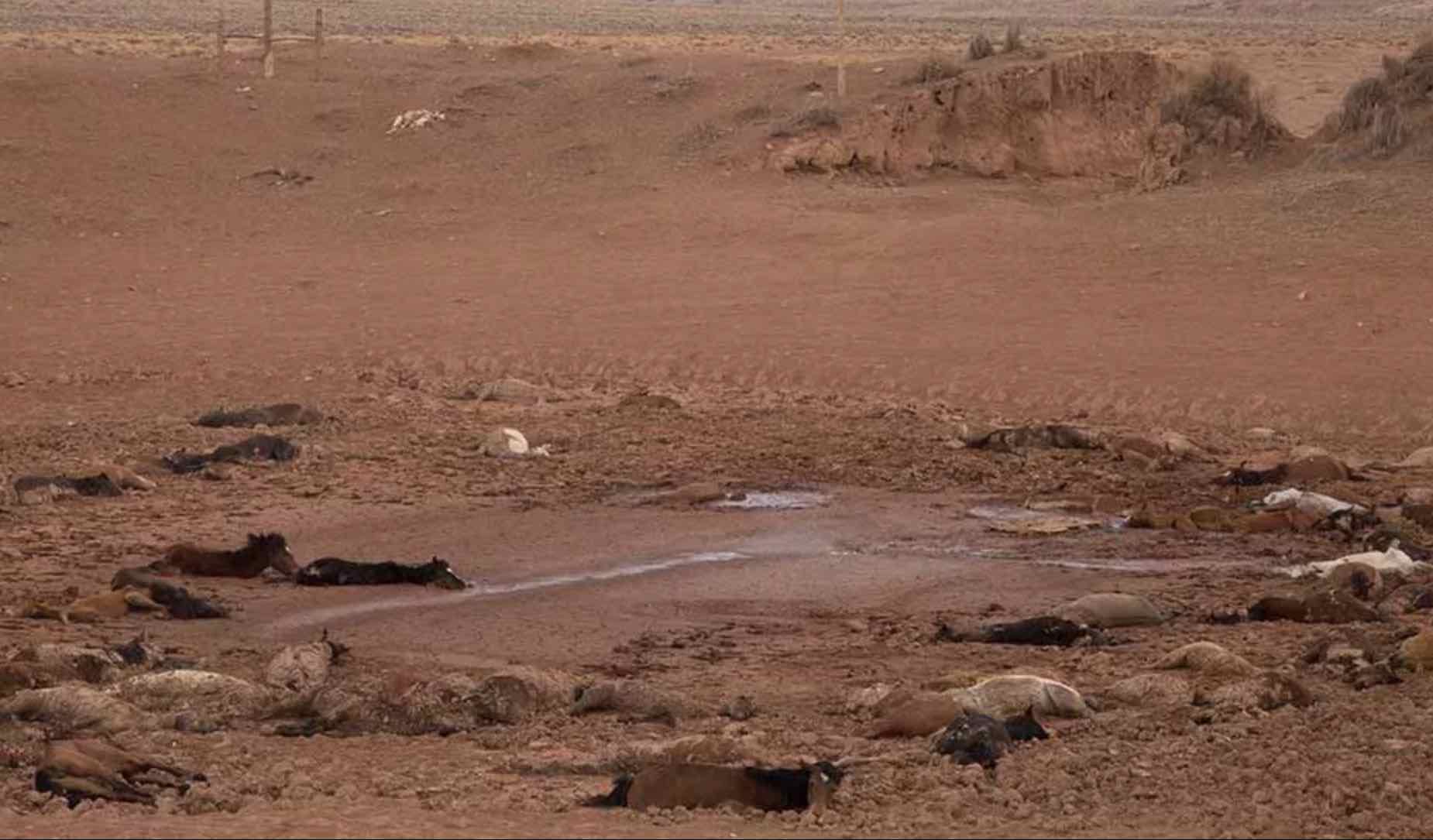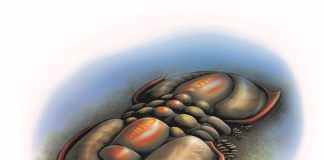
200 dead horses found in Arizona due to drought and famine.
The animals went to the pond in Gray Mountain, an unincorporated community in Coconino County in north central Arizona, in search of water. But they somehow found themselves burrowed into the mud and too weak to escape, said Jonathan Nez, vice president of the Navajo Nation, which is the largest Native American tribe in the country and covers parts of Arizona, New Mexico and Utah.
Some of the 191 horses were buried neck deep in the mud, Navajo officials said. Some were buried beneath others. Pictures show the horses’ overlapping bodies, arranged roughly like a circle, as they lie on the parched earth.
The mass deaths come as Arizona experiences an exceptional drought unlike anything it’s seen in more than a decade. Navajo officials say horses dying near an empty watering pond is “not a new but a seasonal issue.”
The deaths also underscore an overpopulation of free-roaming horses, a problem entangled in competing interests, scarcity of resources and tribal cultural values.
About 73,000 horses and burros roam free in the western United States; that number has far exceeded what government officials say the land can sustain. With such overpopulation, having herds of free-roaming horses has become expensive. For example, damages the animals cause cost the Navajo Nation more than $200,000 a year. According to the Navajo Department of Agriculture, one horse consumes 18 pounds of forage a day. Removing as many as 13 dozen horses would save the Navajo Nation more than 290,000 gallons of water and 1.1 million pounds of forage a year.













